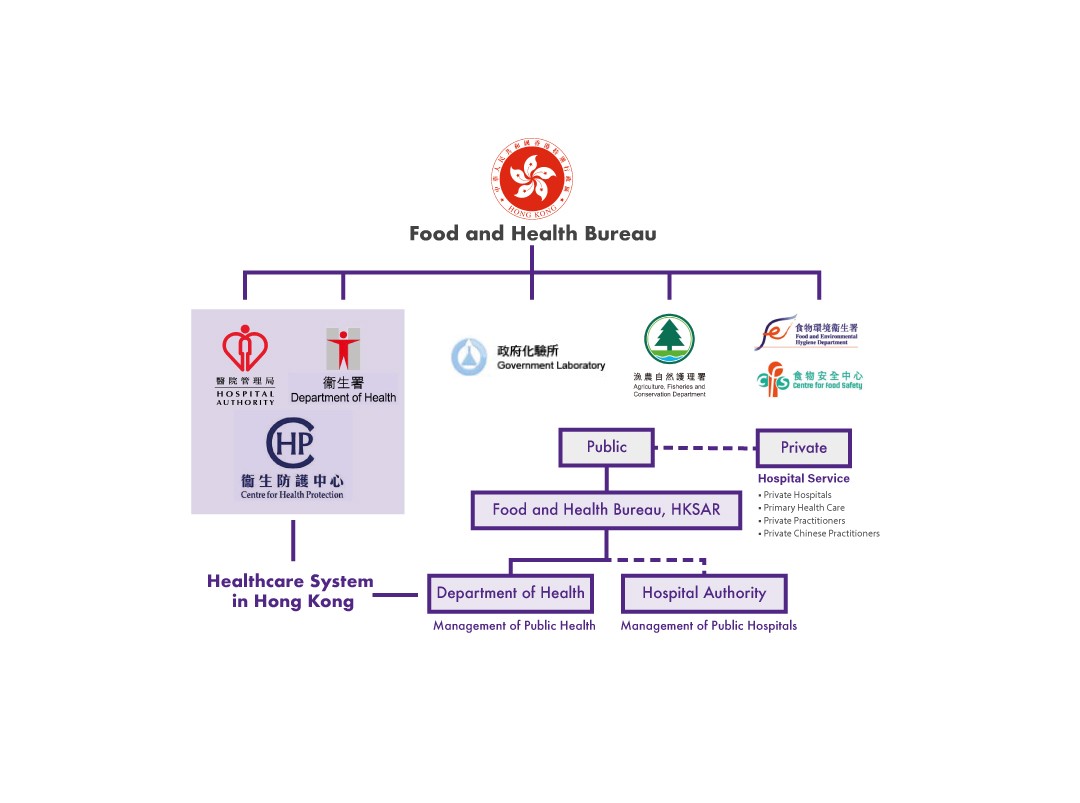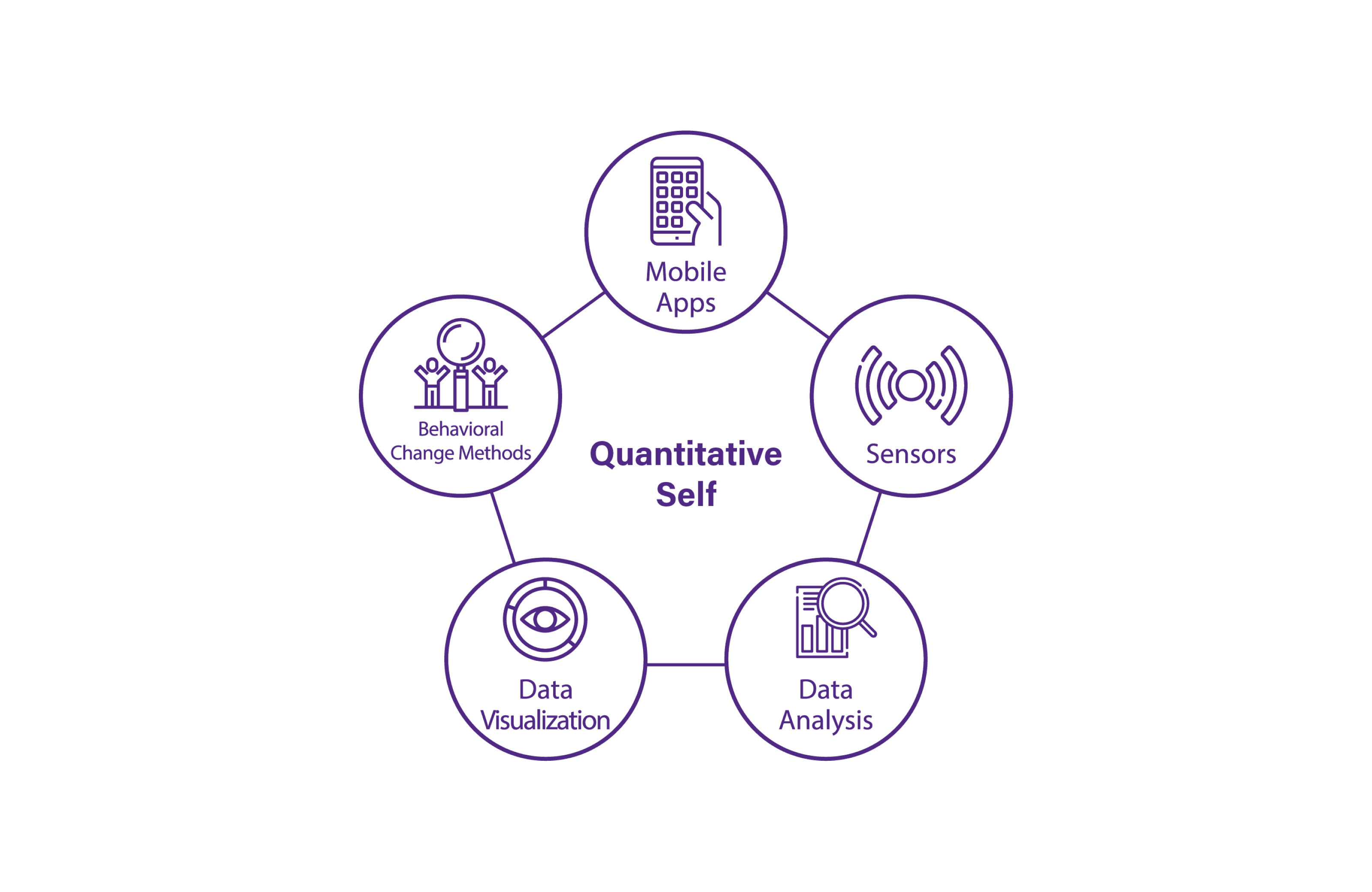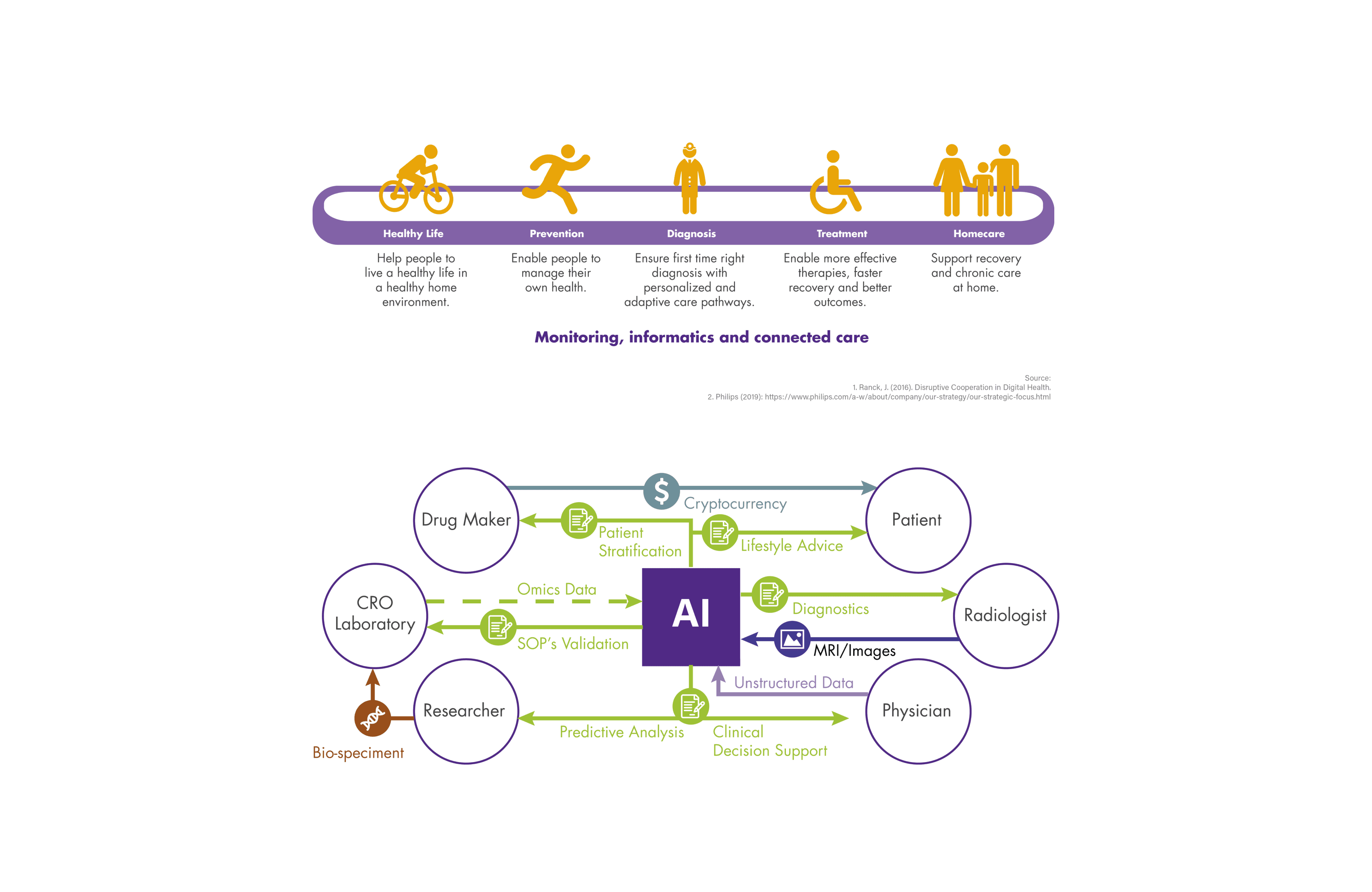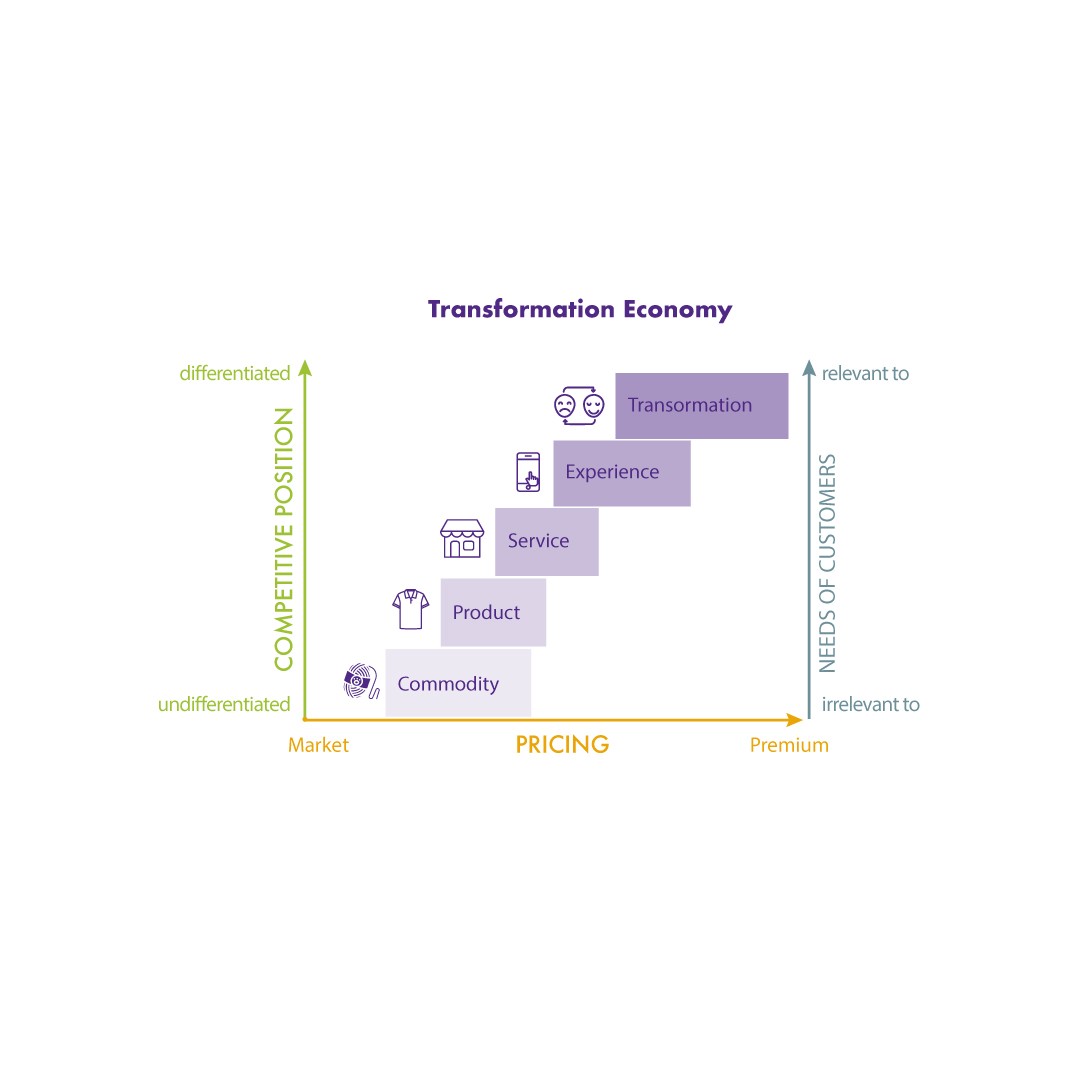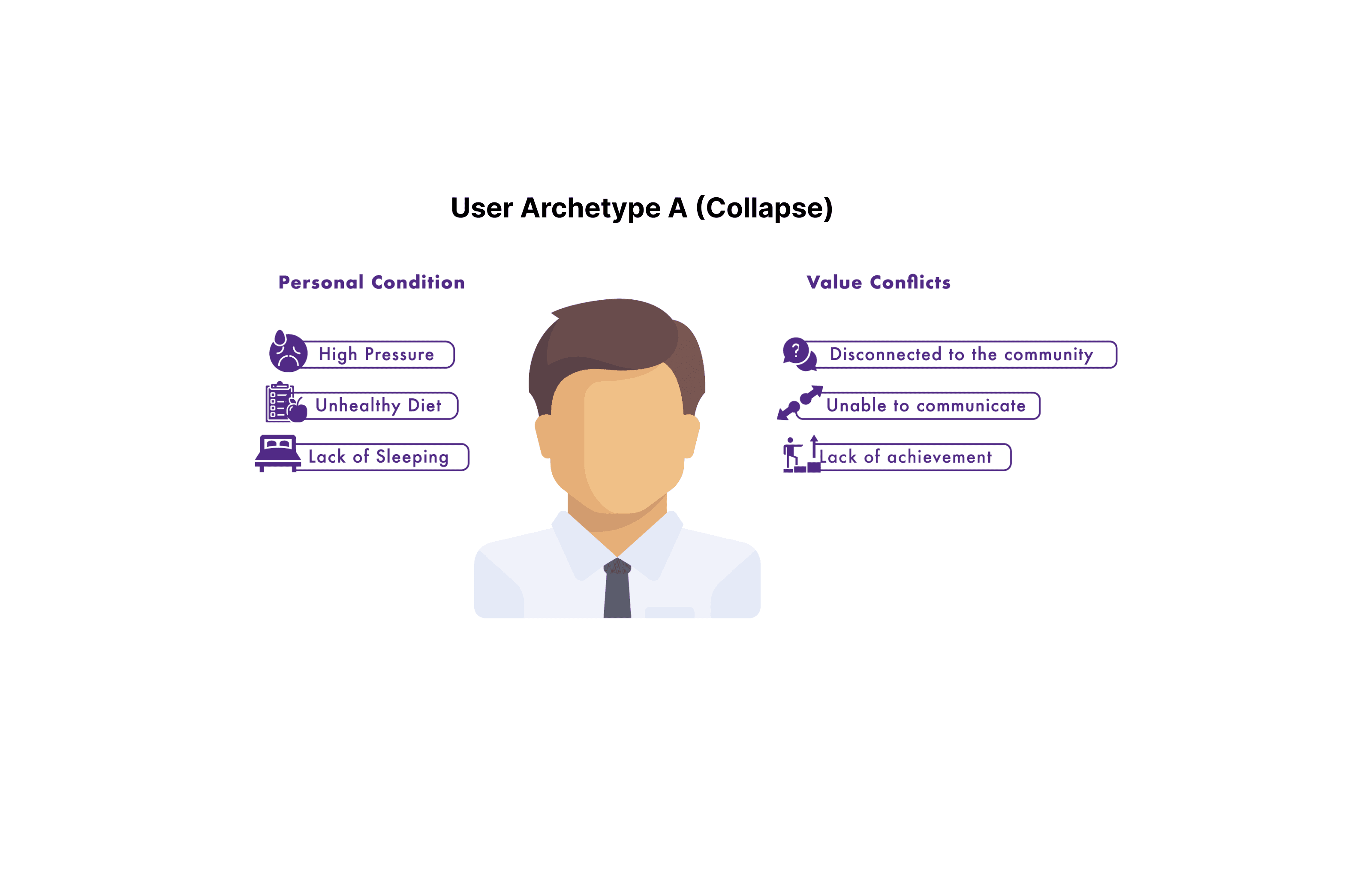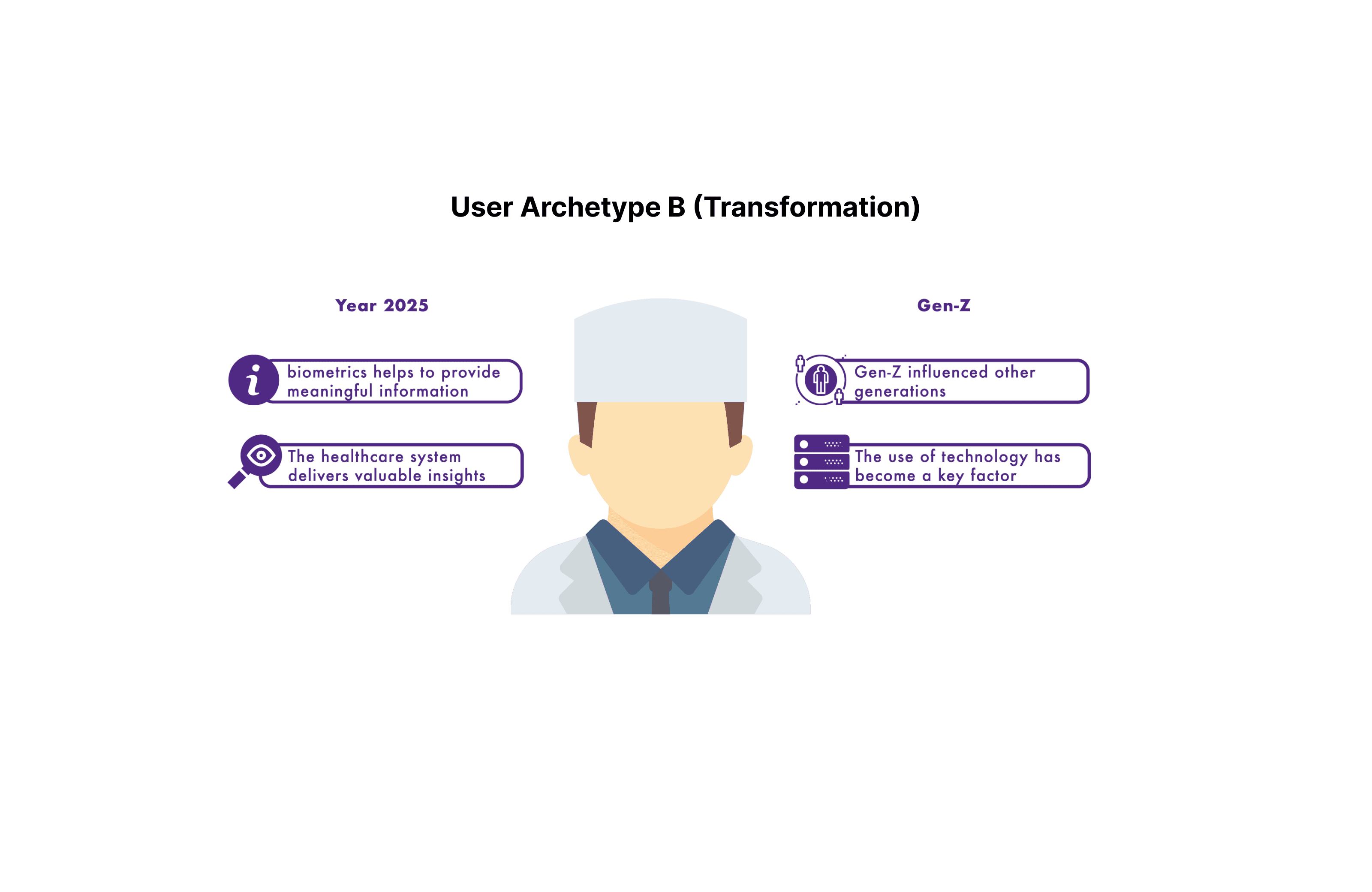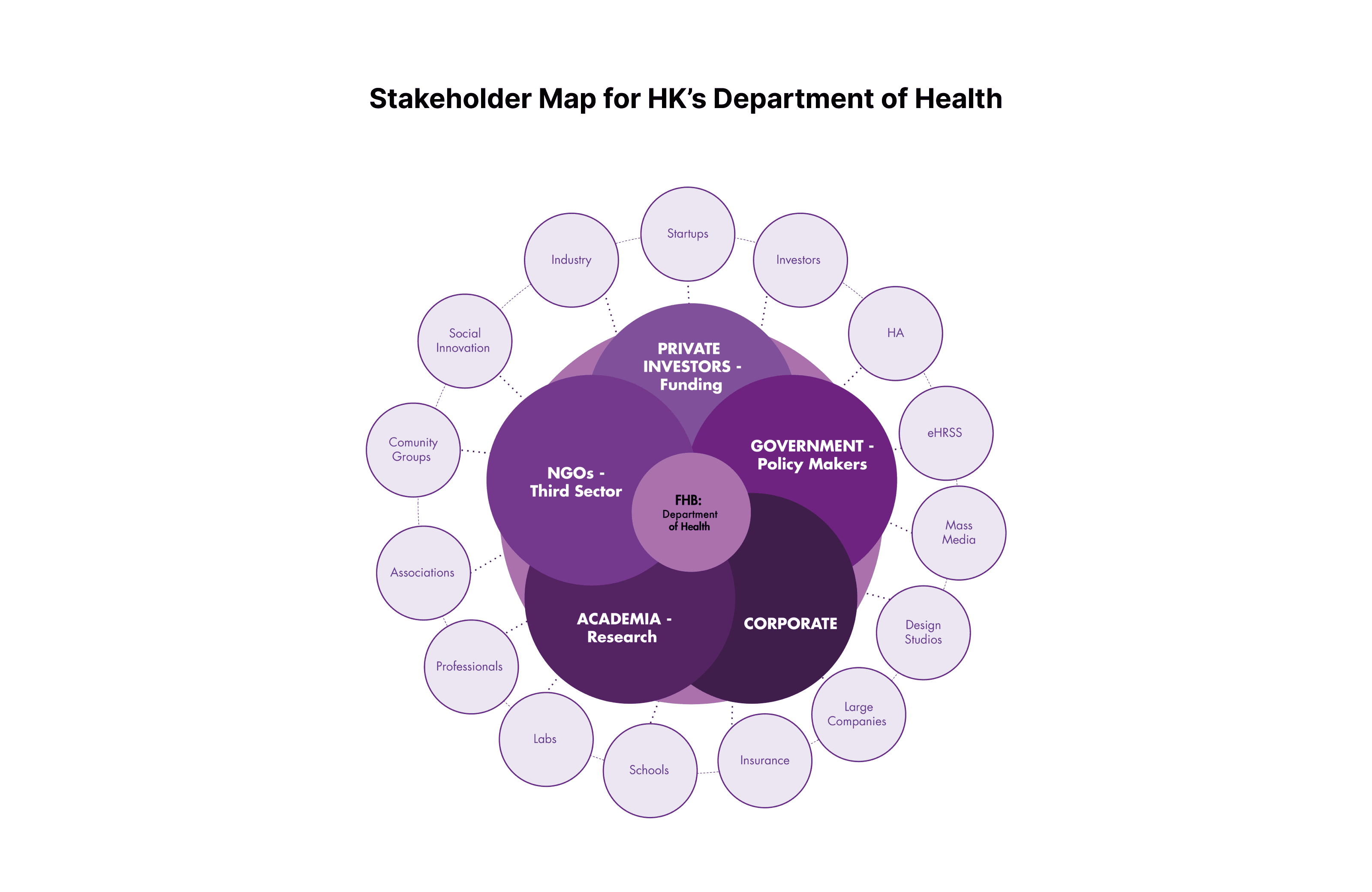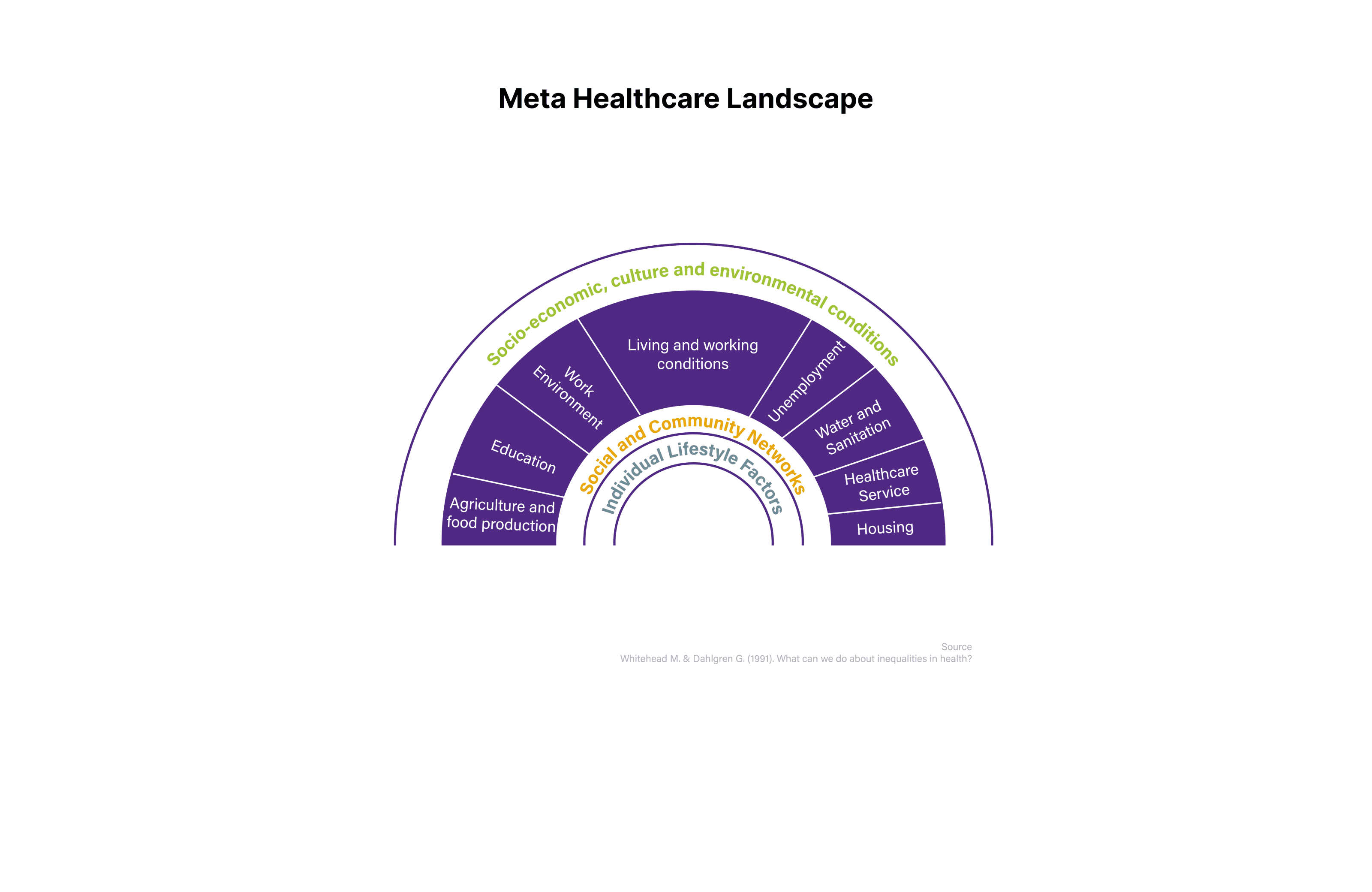Hong Kong's Healthecare Ecosystem Design
This proposal presents a strategic design framework for a preventive healthcare ecosystem aimed at enhancing the life quality of Hong Kong's Gen Z over the next decade.
Project details
Client
Master's of Design - Project
Project
Hong Kong's Healthecare Ecosystem Design
Year
2019
Services
Service Design Strategic Design Systemic Design
Credits
Adrian Stapfer
Bon Pang
Tony To
Kit Tong

Category
Service Design, Strategic Design, Systemic Design.
My Role
Research & Foresight.
Problem Statement
Hong Kong must prepare and adapt to an ageing population and the growing burden of chronic disease to prevent the collapse of the healthcare system.
Key personal challenge(s)/learning(s)
The biggest challenge we faced was analysing the healthcare ecosystem of a city like Hong Kong. Understanding the various stakeholders, systems, and strategies currently implemented was complex. Developing alternatives for one of the world’s most efficient bureaucracies required diverse soft and hard skills, lateral thinking, and critical engagement. This project taught me to connect the dots and identify opportunities using futures thinking and scenario development.
Solution and Impact
To make use of meaningful healthcare data by a holistic capturing system, creating a collaborative and connected society.
Hong Kong's potential to become a Smart City is driven by its dynamic financial ecosystem, fueled by a privileged geographic position, and amplified by strategic initiatives. An intervention in the physical and mental healthcare system will empower the future Generation Z, which requires a meaningful and inspirational environment to develop.
Background - Why now?
Additionally, the initiatives of the Hong Kong Healthcare Department and the electronic Health Record and Sharing System (eHRSS) are not integrated and fail to address the needs and interests of Generation Z. This generation is currently experiencing a rising rate of depression due to conflicting values and an unhappy environment for young people's development in Hong Kong.
Megatrends Analysis & Key Insights
Hong Kong’s population is expected to reach 8.22 million by 2044.
21 technological shifts are anticipated to occur by 2027.
Hong Kong aims to transition towards a high value-added and knowledge-based economy.
The growing global population is projected to demand approximately 35% more food, 40% more water, and 50% more energy by 2030.
Epidemic diseases will challenge the Hong Kong SAR to provide security, basic services, and social stability.
Building Information Modelling (BIM), Virtual Hong Kong, and Smart City initiatives are underway.
Source: PwC. (2017). Smart City Blueprint Consultancy Study. Department, D. B. P. (2016). Hong Kong, 2030.
Key Learnings & Next Steps
The present research was pitched to various stakeholders and 'Angel Investors' relevant to the Hong Kong Healthcare Bureau. Different business opportunities were discussed and proposed for further development. This strategic design proposal also showcases the creative potential for culture and social impact through macro analysis of the current scenario and emerging trends within and beyond the healthcare department of Hong Kong.
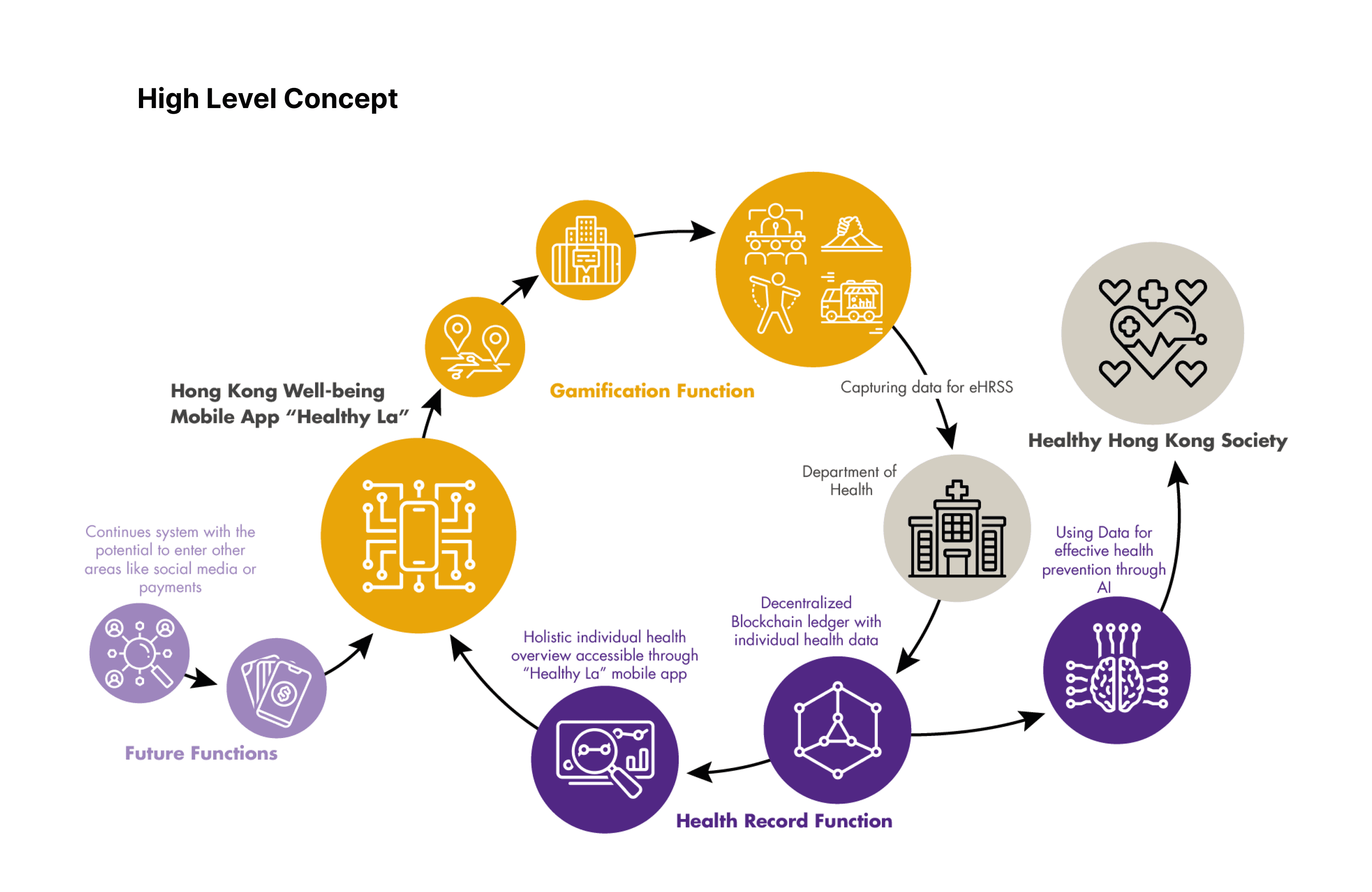
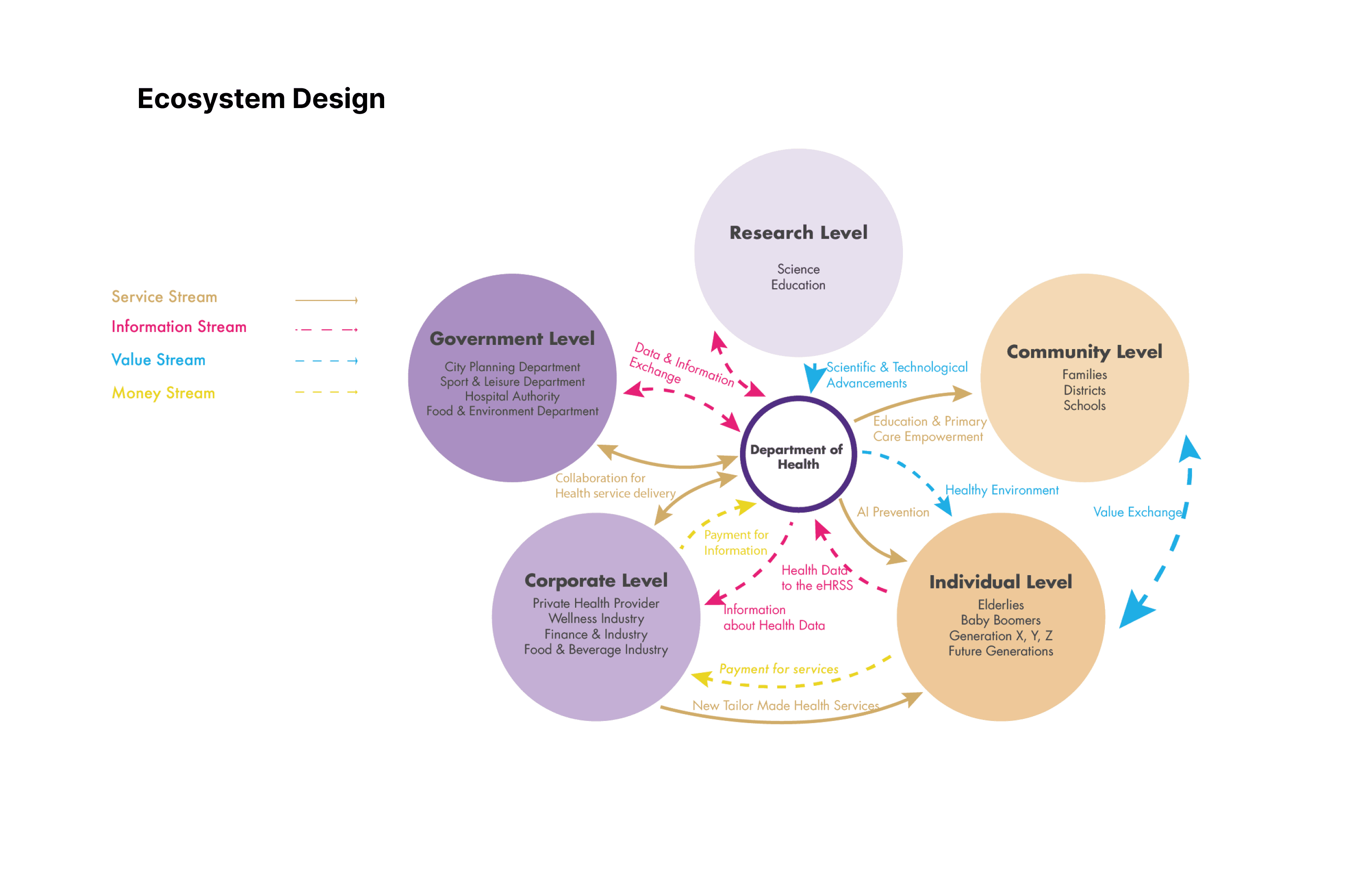
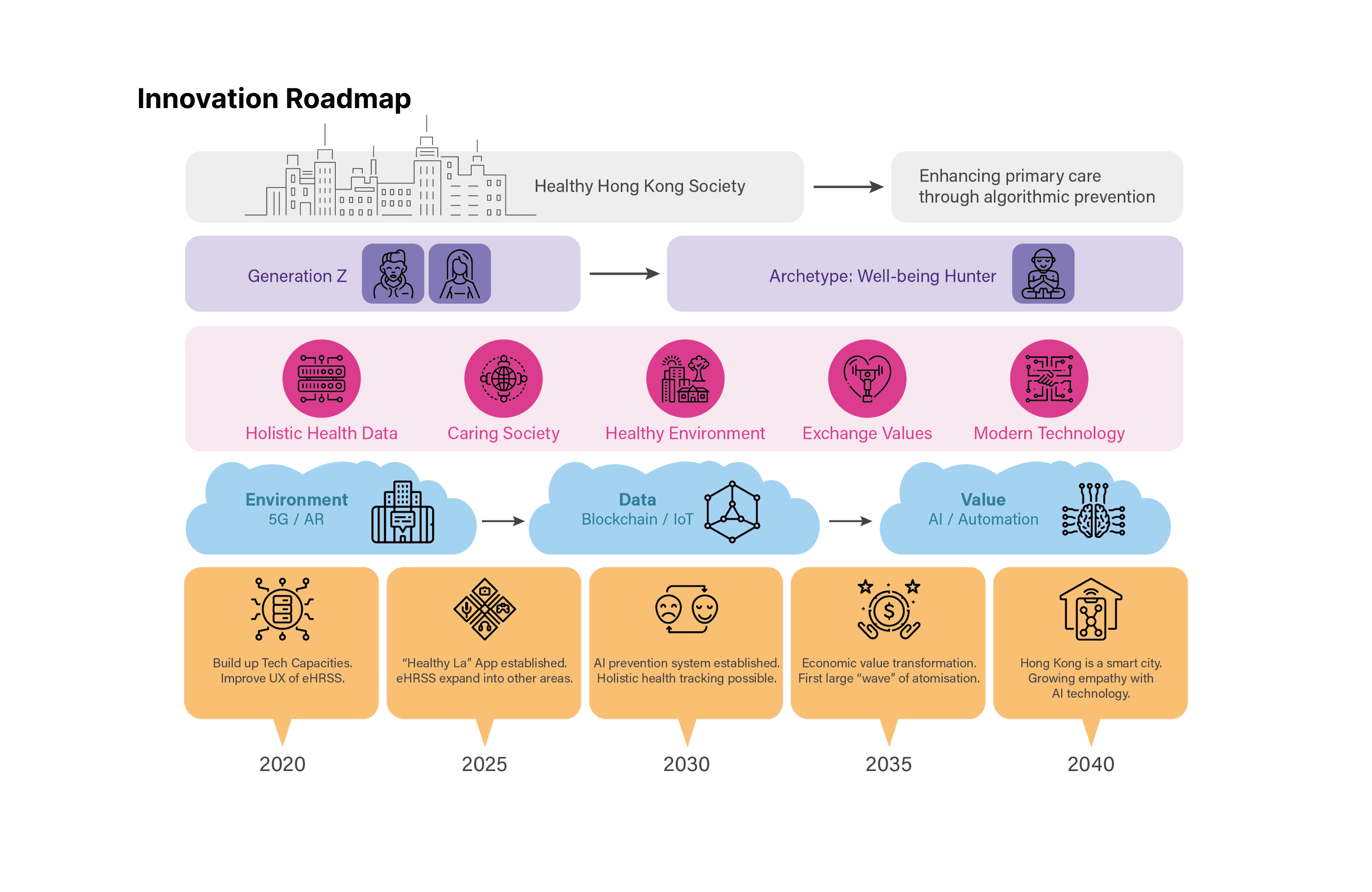
This was only a Glimpse.
I would love to share the full version with you. Connect with me on Linkedin or send me a message below.
